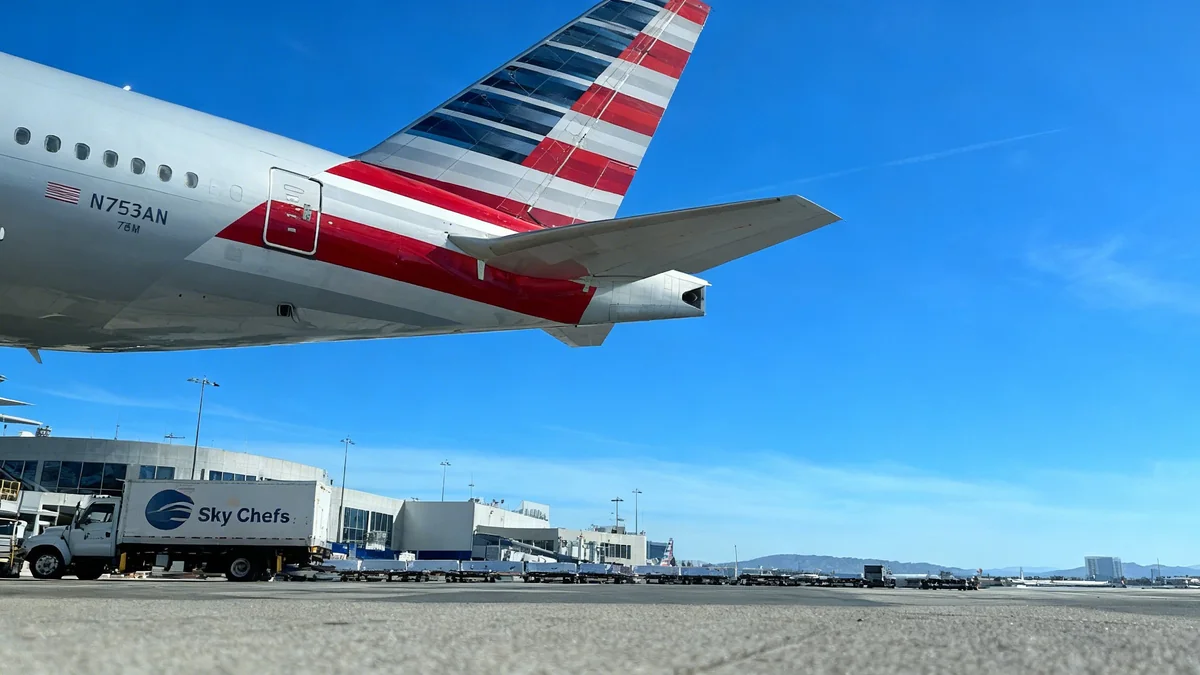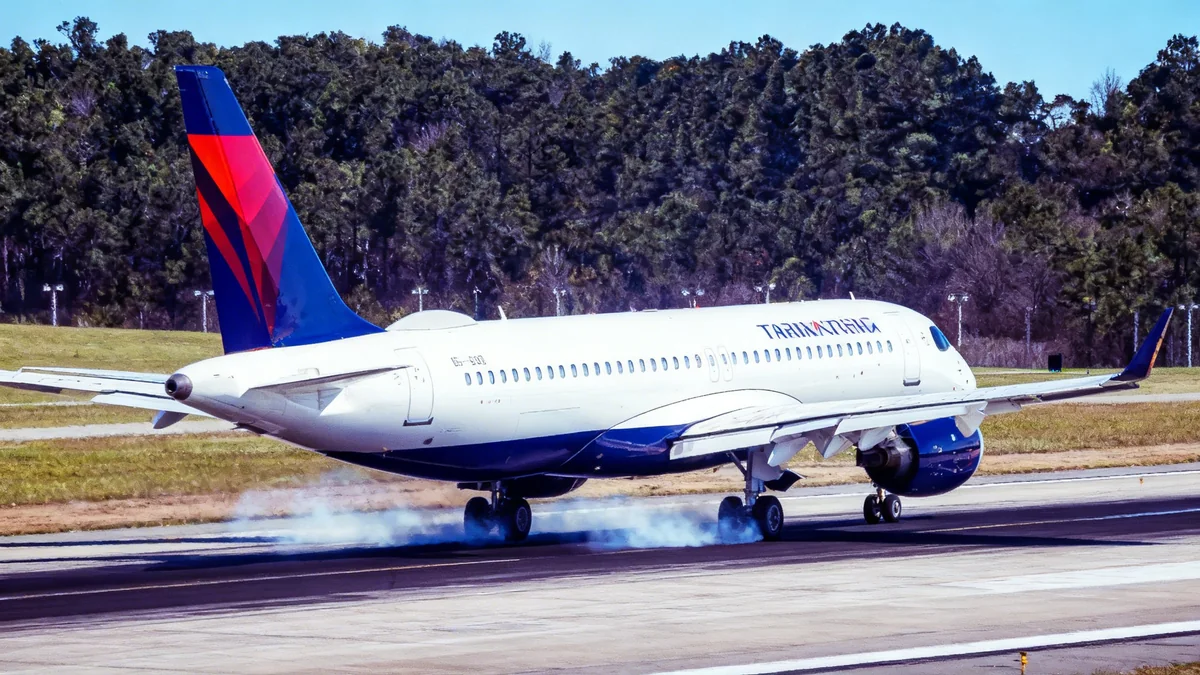Icelandic low-cost carrier PLAY is set to discontinue all flights to the United States. The airline's final US-bound journey will depart on October 24, from Keflavik, Iceland, to Baltimore, Maryland. This route was PLAY's first US service, launched in April 2022.
The decision marks a strategic shift for PLAY, which has cited high costs, intense competition, and seasonal demand in the US market as factors contributing to unprofitability. The airline will now focus on leisure-oriented routes within Southern Europe.
Key Takeaways
- PLAY airline will cease all US operations by October 24, 2025.
- The final US route will be Keflavik to Baltimore.
- The airline identified the US market as expensive, competitive, and loss-making.
- PLAY plans to reorient its strategy towards Southern European leisure markets.
- Canadian flights also ended in April 2025.
Strategic Reorientation and Market Challenges
PLAY has stated that its US operations were financially challenging. The airline faced significant expenses and reported losses. Factors contributing to this included fierce competition and the seasonal nature of transatlantic travel to and from the US. Yields, or the average revenue per passenger, did not meet the airline's expectations.
This exit from the US is part of a broader strategic reorientation for PLAY. The airline intends to concentrate on point-to-point markets in Southern Europe. These routes are described as low-frequency and leisure-driven, and the airline reports they perform well. Additionally, PLAY plans to expand its leasing activities and utilize its Maltese air operator's certificate for other opportunities, both independently and through collaborations.
Key Aircraft Information
- Aircraft Type: Airbus A320neo
- Seating Capacity: 174 or 180 seats
- IATA Code: 320 (A320-100/-200), 32A (A320-200), 32S (A318/A319/A320/A321 generic), 32F (A320 freighter conversion, rare)
Gradual Exit from US Operations
PLAY's withdrawal from the US market has been a phased process throughout 2024 and 2025. The airline progressively reduced flight frequencies and terminated several routes before this final announcement. This gradual reduction indicates a calculated move rather than an abrupt halt.
Flights connecting Keflavik and Washington Dulles International Airport concluded in December 2024. Some industry observers noted that operating routes to both Baltimore and Dulles, despite being in somewhat different catchment areas, seemed unusual for a smaller airline. These airports are relatively close geographically.
Previous Route Closures
In September 2025, PLAY also ceased its service to Stewart International Airport, which serves the Greater New York City area. Stewart Airport is known for its lower operating costs and less congestion compared to larger hubs. With PLAY's departure, Stewart no longer offers any flights to Europe. PLAY had faced indirect competition on these routes from Icelandair, Delta Air Lines, and United Airlines, which serve New York's JFK and Newark airports.
Also in September 2025, PLAY stopped flying to Boston. Despite PLAY's exit, Boston's overall European flight activity has increased significantly in the past year. PLAY competed directly with Icelandair on the Boston route. According to Cirium Diio data, Boston had more seats and flights in 2025 than any other US route operated by PLAY.
"The US market was expensive and loss-making for us. It is heavily competitive and seasonal, with overcapacity. Yields were not where they needed to be," a PLAY representative stated regarding their decision.
The Final US Route: Keflavik to Baltimore
Currently, the Keflavik to Baltimore route is the only remaining US service for PLAY. The airline operates this route between five times weekly and daily. It uses either its 174-seat or 180-seat Airbus A320neo aircraft. The schedule for this route is designed to facilitate connections across wider Europe for passengers.
The inbound arrival time for flights from Keflavik to Baltimore is notably early, at 04:55 local time. This timing is typical for airlines that aim to maximize connectivity for passengers traveling onward to various European destinations.
Competition on Baltimore Route
PLAY directly competes with Icelandair on the Keflavik-Baltimore route. Icelandair currently operates daily flights using Boeing 737 MAX 8 and MAX 9 aircraft. Icelandair benefits from a codeshare agreement with Southwest Airlines, which provides crucial domestic connections for its passengers. Following PLAY's exit, Icelandair plans to increase its Baltimore service to twice daily next summer, capitalizing on reduced competition.
Icelandair's Expanded Service
Icelandair is also expanding its service to the Washington D.C. area. The airline will continue to serve Dulles International Airport twice daily during the peak summer season. This expansion will mark the first time Icelandair has four daily departures to the D.C. area, combining Baltimore and Dulles flights. These flights are strategically timed for connectivity to and from Europe.
Icelandair's Expanded D.C. Area Schedule (Peak Summer)
- Departures from Keflavik: 16:50 (Dulles), 17:00 (Baltimore), 20:05 (Baltimore), 20:05 (Dulles)
- Arrivals in Iceland: 06:25 (Baltimore), 06:25 (Dulles), 09:25 (Baltimore), 09:25 (Dulles)
PLAY's Canadian Operations Also Ceased
PLAY's presence in the Canadian market was limited. The airline opted to serve Hamilton, Ontario, instead of the larger, more congested, and typically more expensive Toronto Pearson International Airport. This service operated from June 2023 to April 2025. During this period, PLAY provided Hamilton's only direct European passenger service.
Booking data indicates that PLAY transported approximately 155,000 round-trip passengers to and from North America. Surprisingly, a majority of these passengers traveled directly to or from Iceland, rather than connecting to other destinations. For those who did transit, Dublin was the most popular connecting city. As part of its full exit from North America, PLAY will also discontinue all flights to Dublin and several other northern European cities.
Impact on North American Travelers
The departure of PLAY means fewer low-cost transatlantic options for travelers from specific US and Canadian airports. While larger carriers like Icelandair are expanding, the cessation of PLAY's service represents a reduction in direct competition, which could impact pricing and availability for budget-conscious passengers.





